
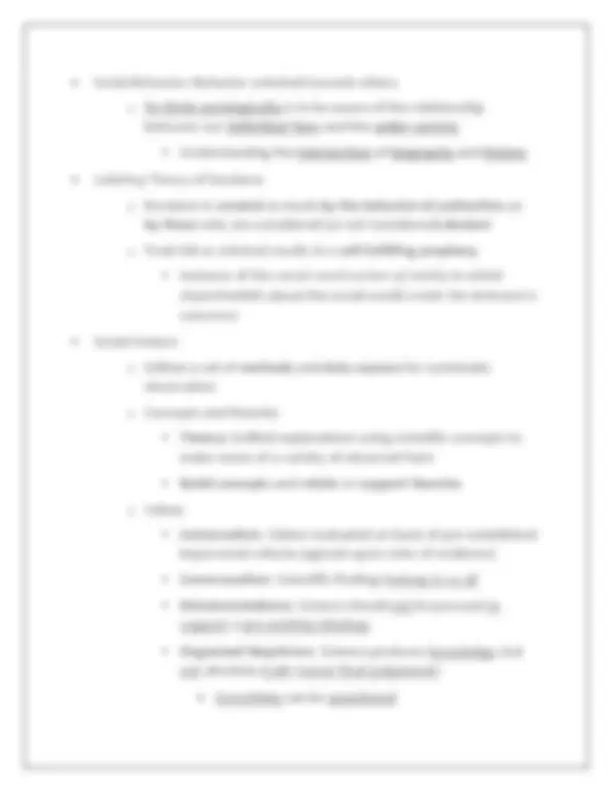
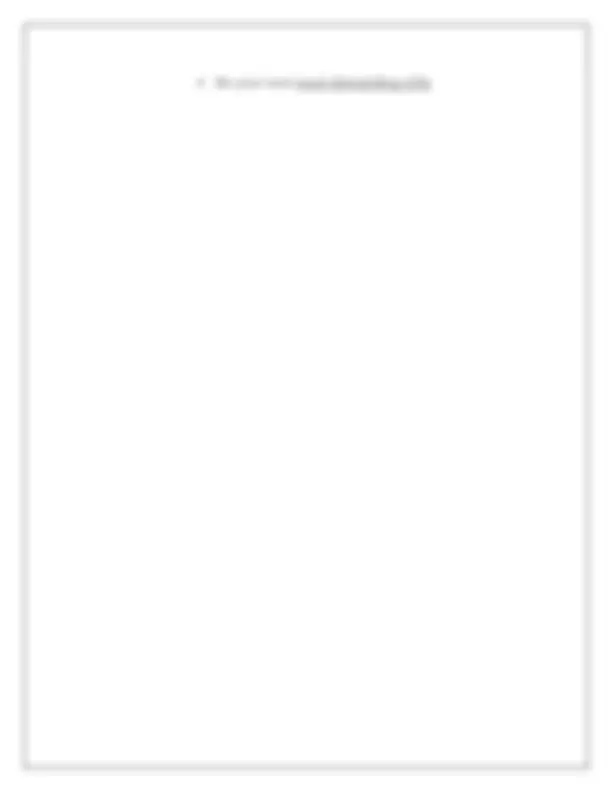
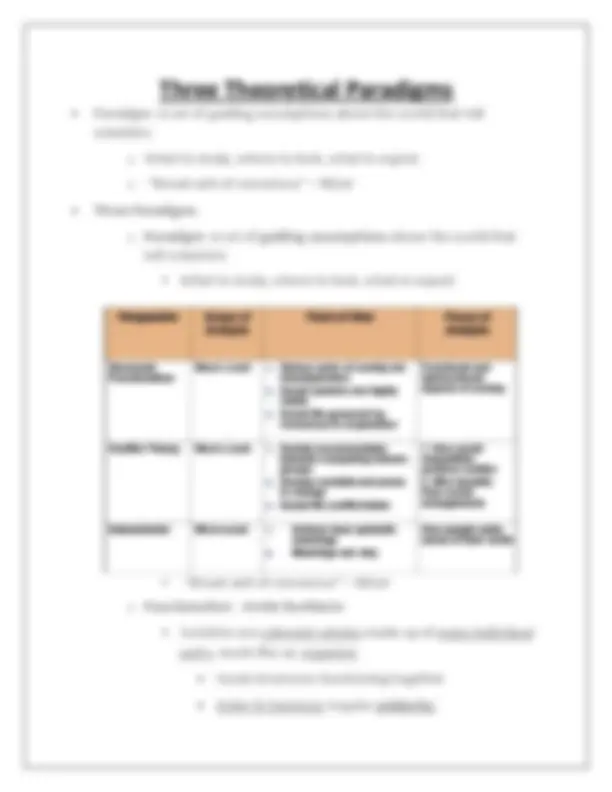
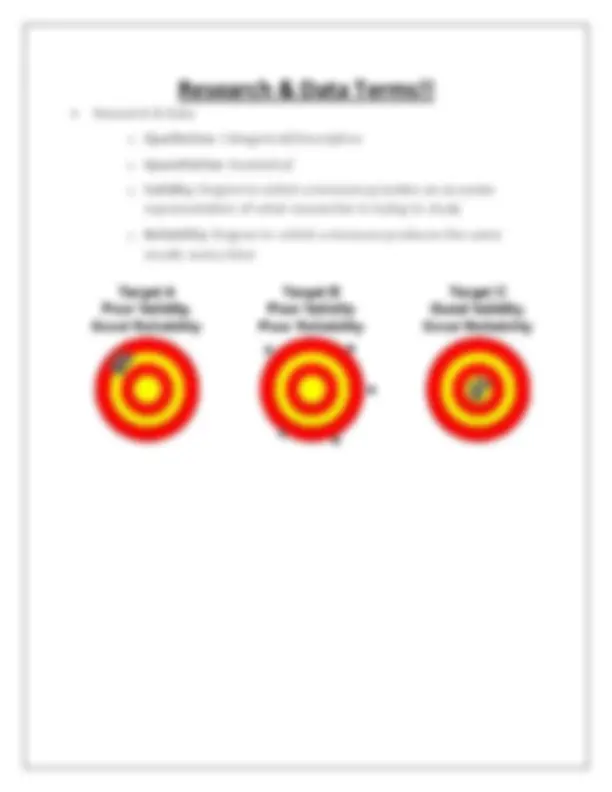
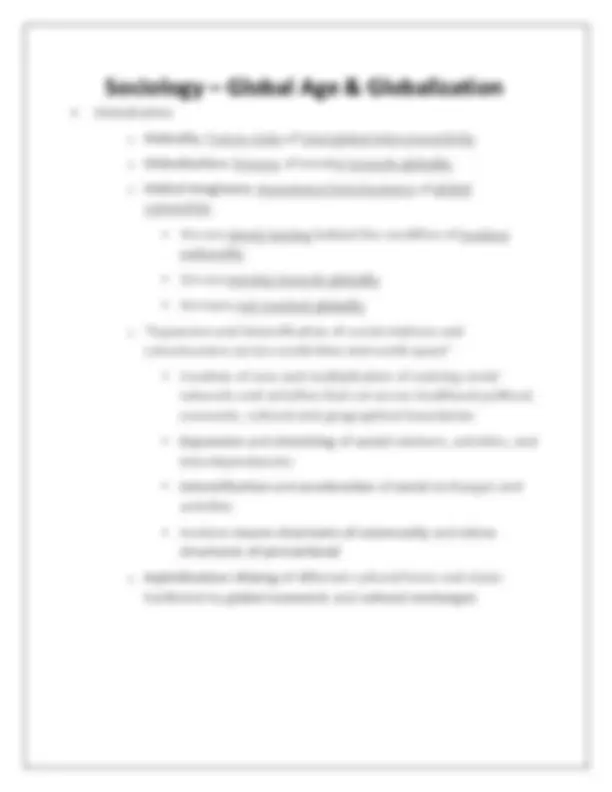
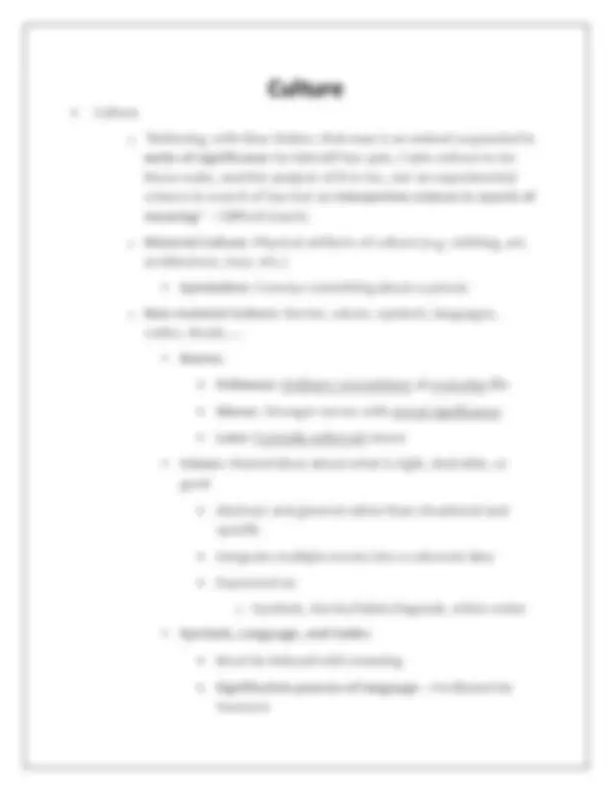
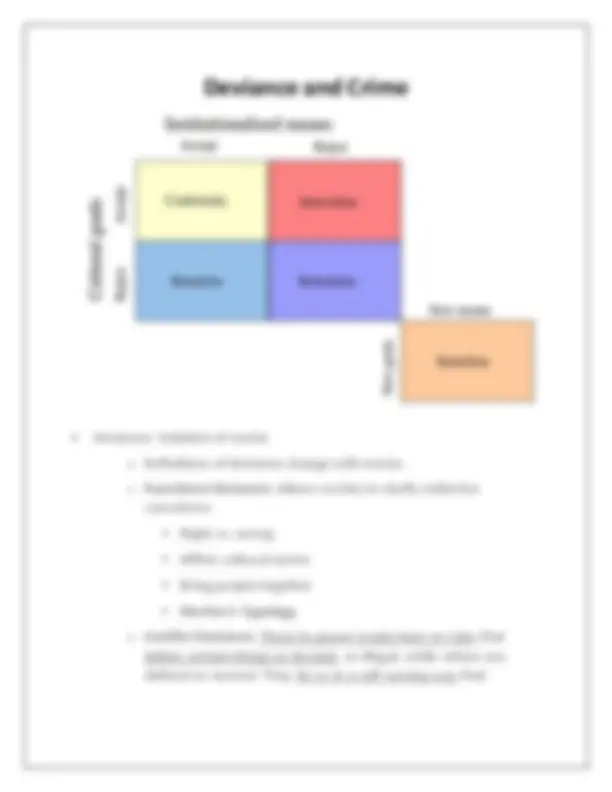
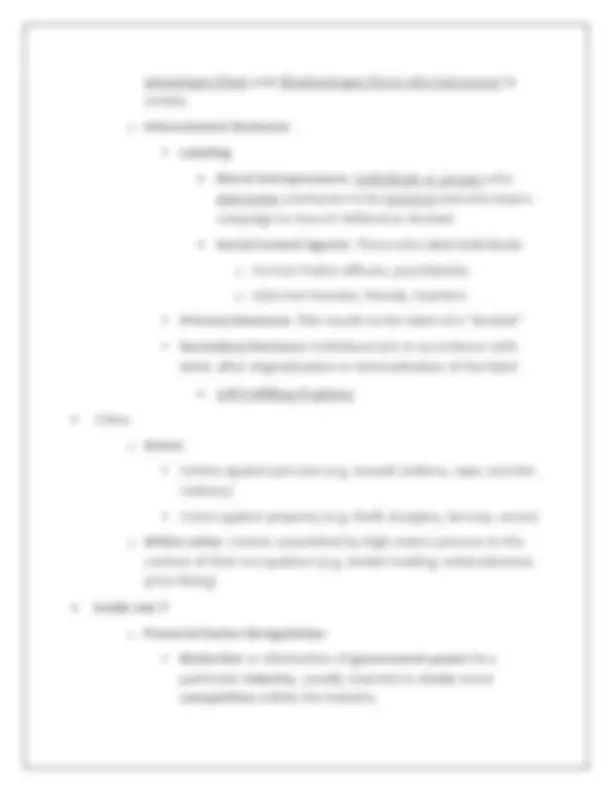
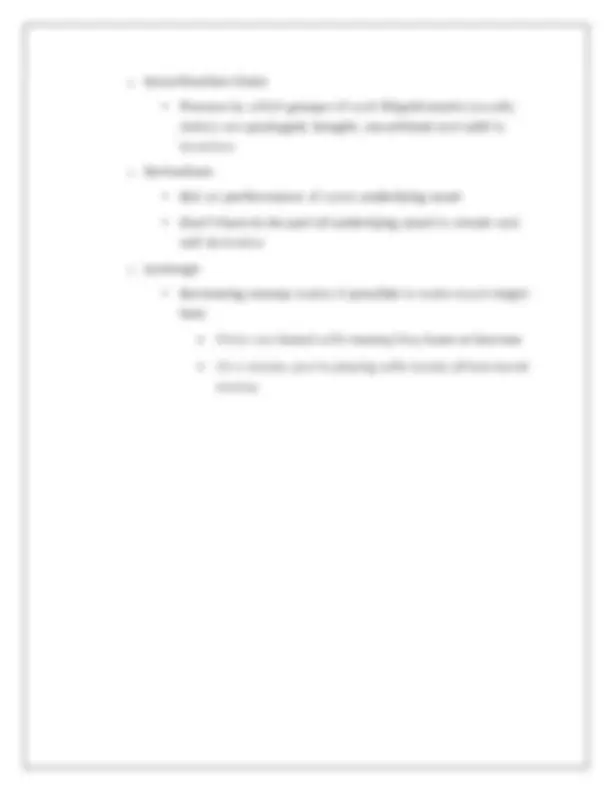
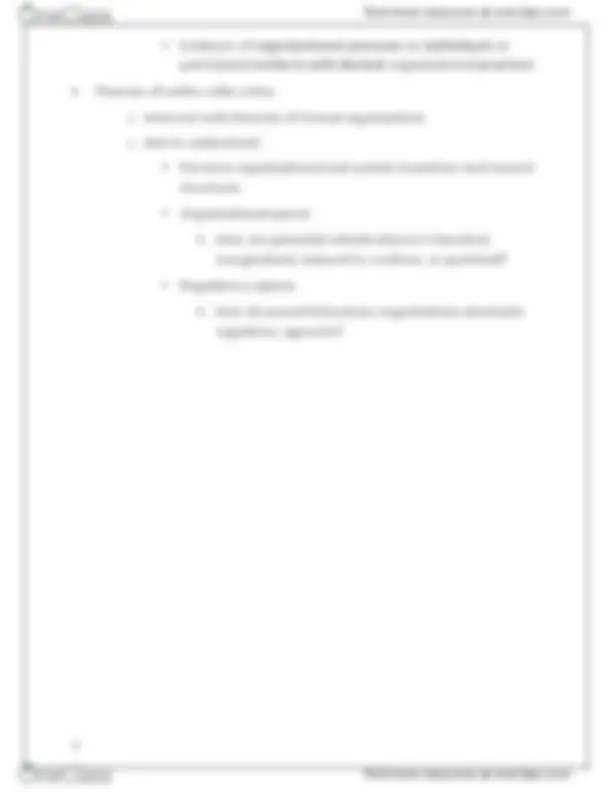
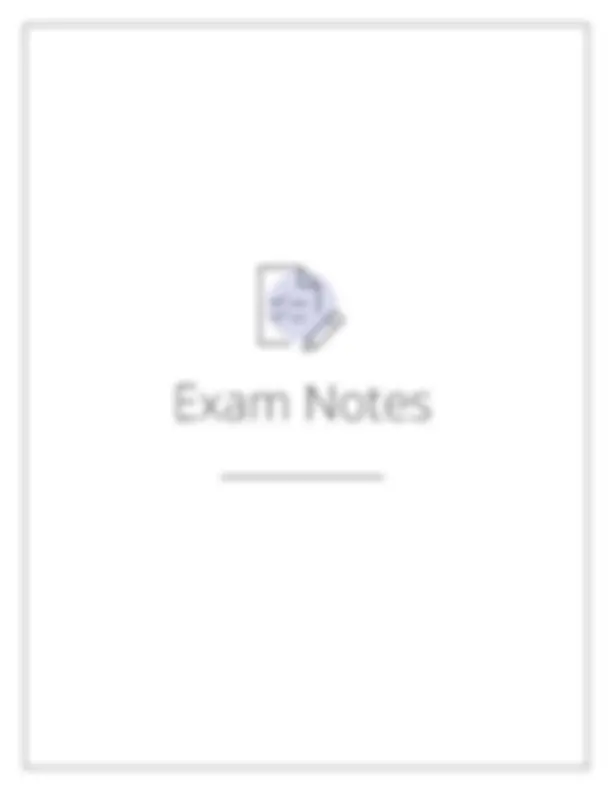
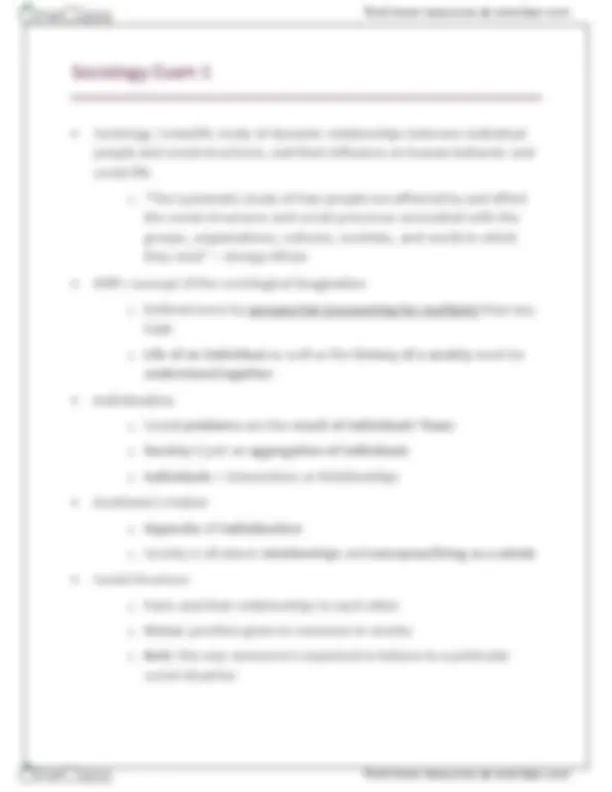
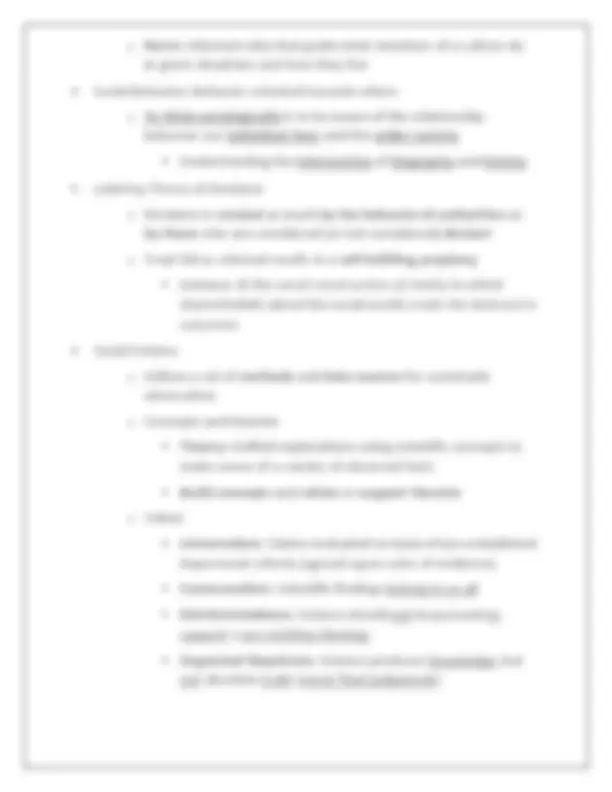
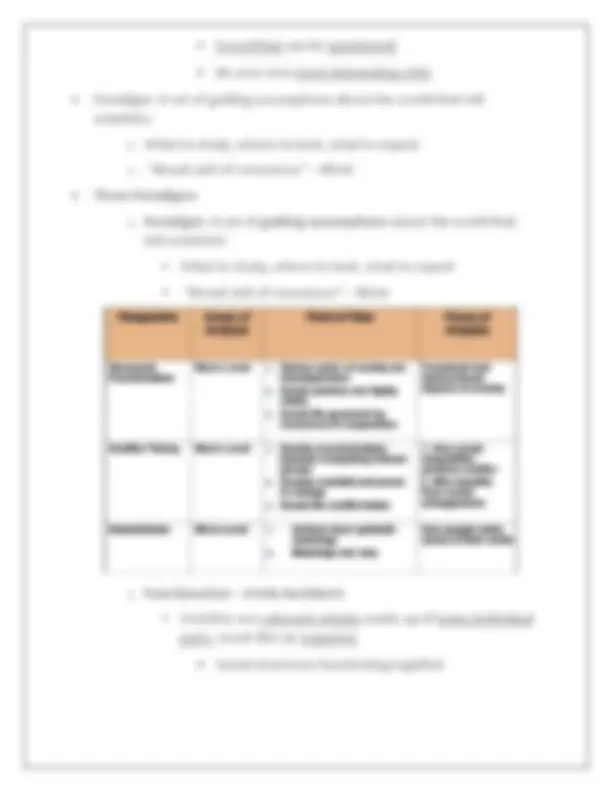
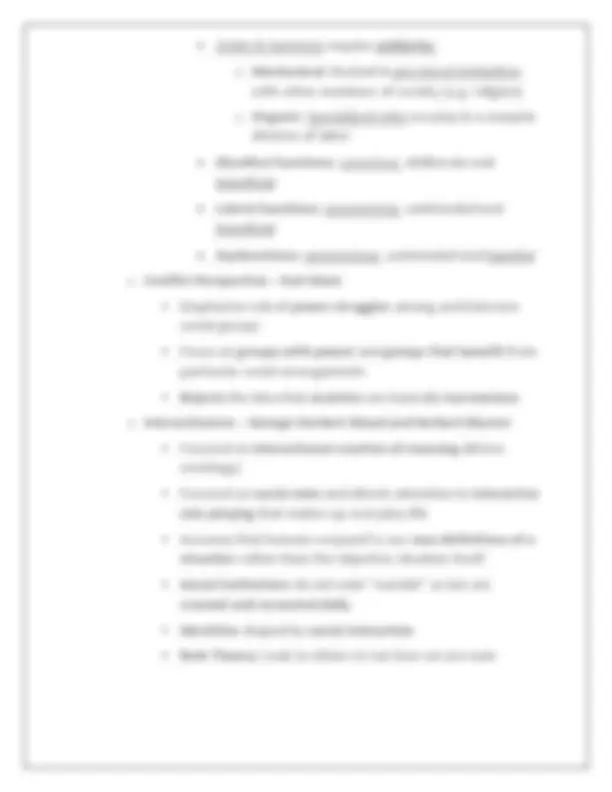
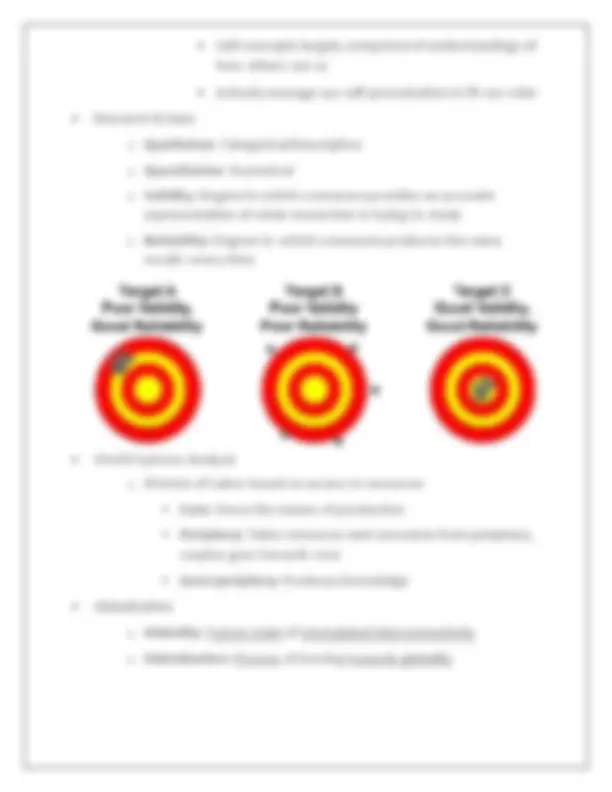
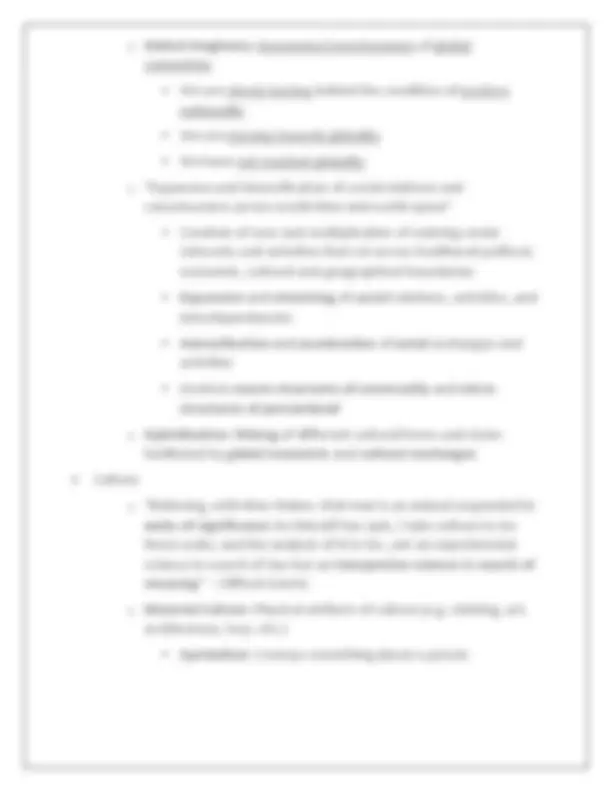
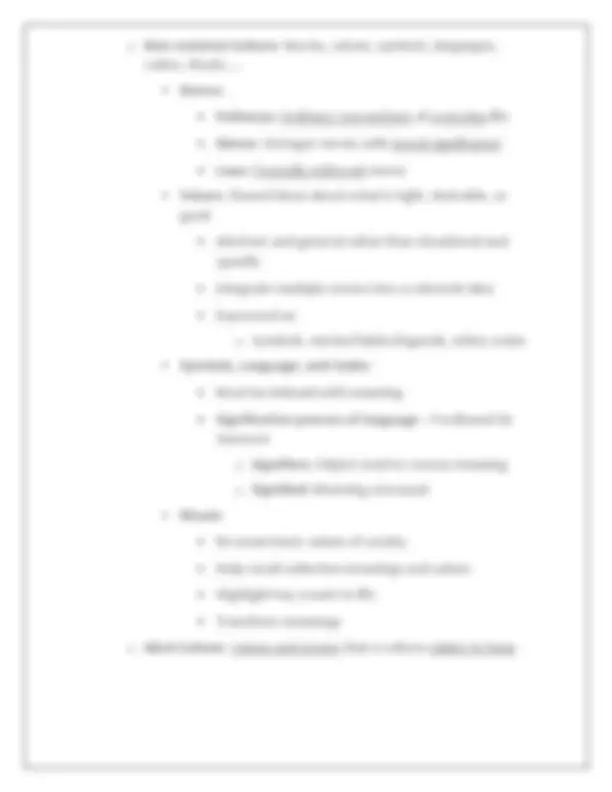
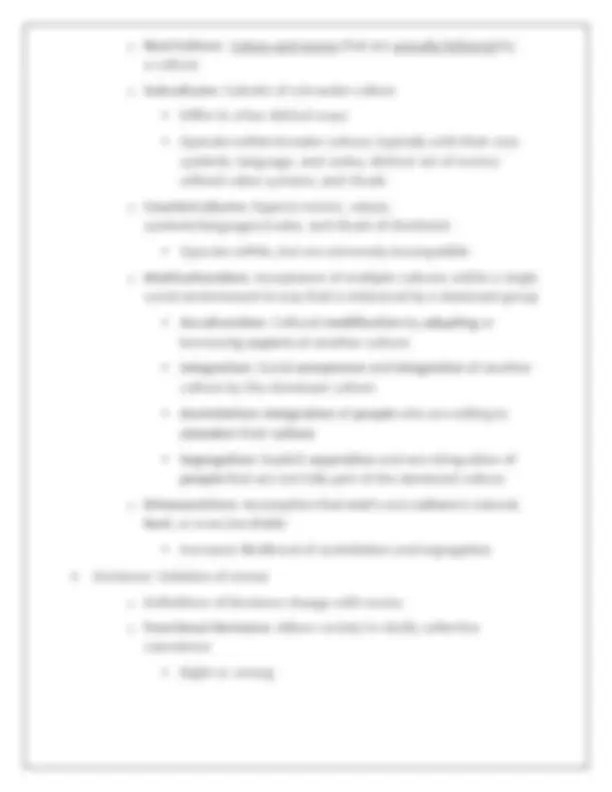
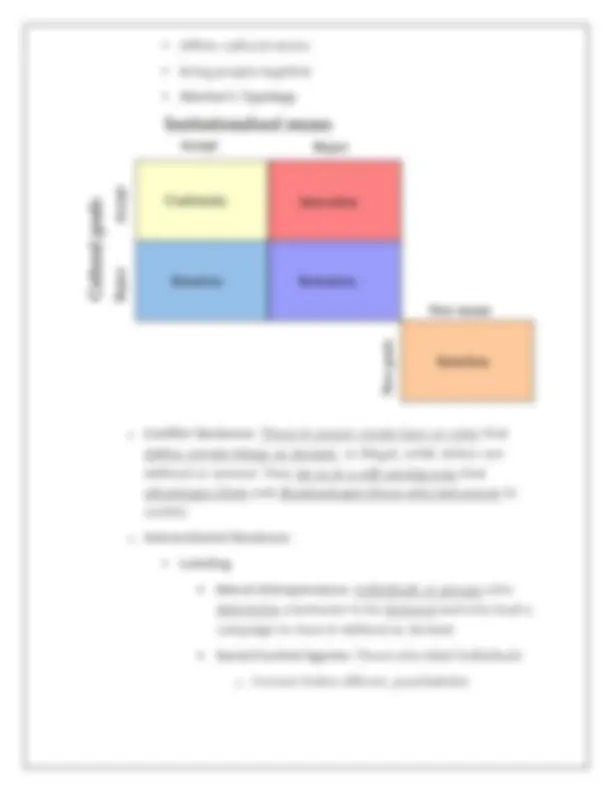
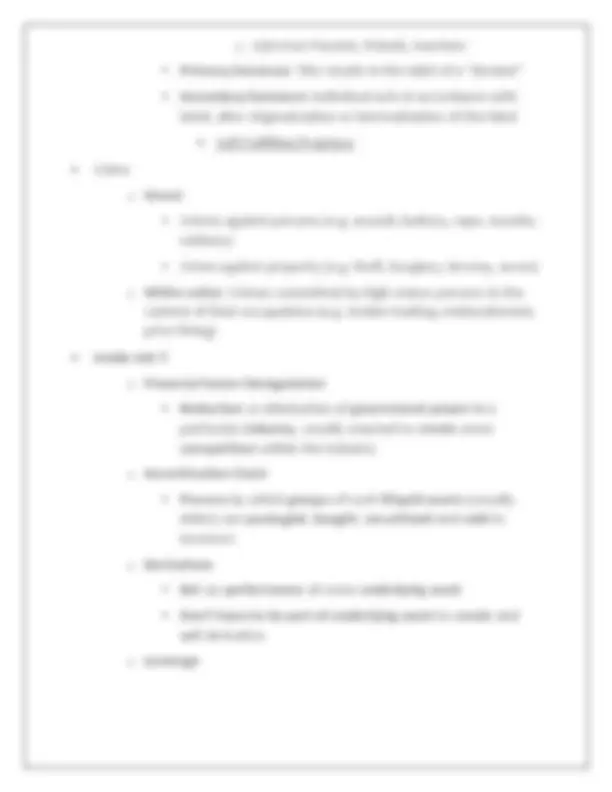
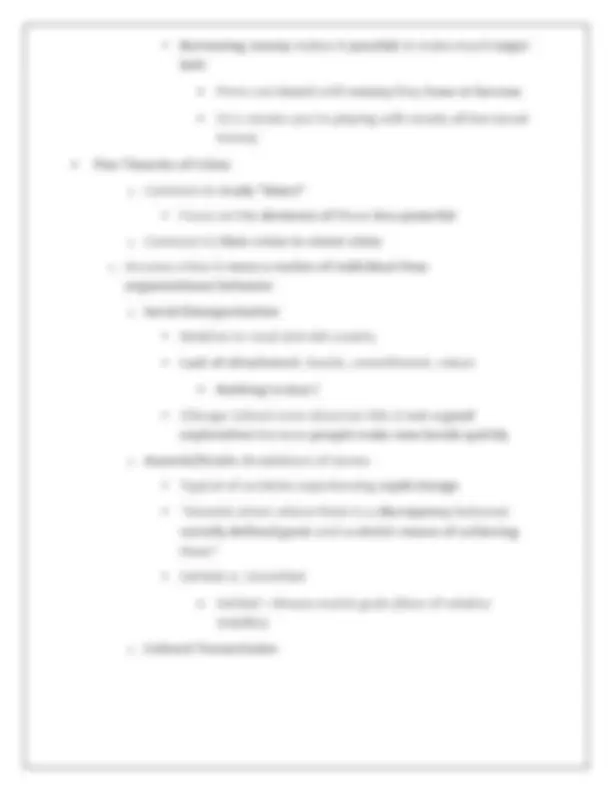
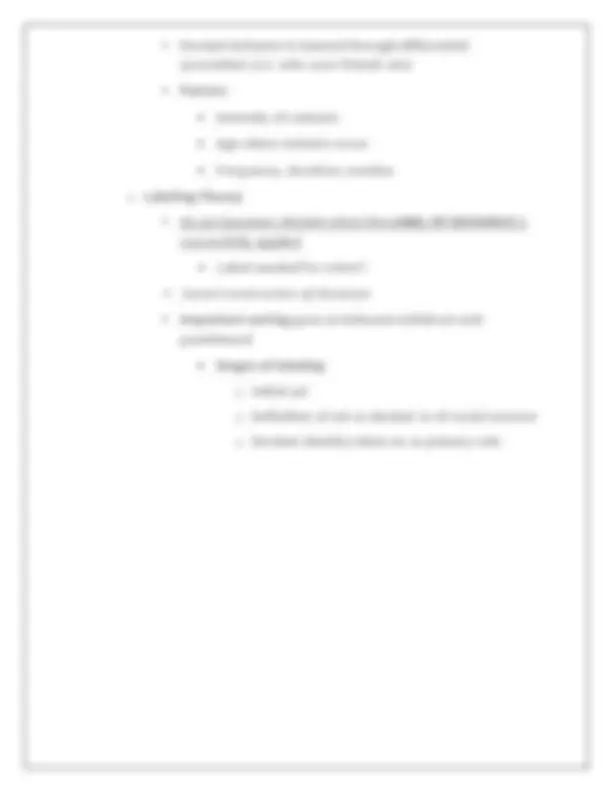


Study with the several resources on Docsity

Earn points by helping other students or get them with a premium plan


Prepare for your exams
Study with the several resources on Docsity

Earn points to download
Earn points by helping other students or get them with a premium plan
Community
Ask the community for help and clear up your study doubts
Discover the best universities in your country according to Docsity users
Free resources
Download our free guides on studying techniques, anxiety management strategies, and thesis advice from Docsity tutors
An introduction to the scientific study of sociology, focusing on the relationships between individuals and social structures, the role of norms, and the significance of culture. Topics include individualism, status, roles, norms, labeling theory of deviance, order and harmony, globalization, and culture. Understand the impact of power struggles, social structures, and cultural values on human behavior and social life.
Typology: Exams
1 / 31

This page cannot be seen from the preview
Don't miss anything!
























Sociology: Scientific study of dynamic relationships between individual people and social structures, and their influence on human behavior and social life o “The systematic study of how people are affected by and affect the social structures and social processes associated with the groups, organizations, cultures, societies, and world in which they exist” – George Ritzer Mill’s concept of the sociological imagination o Defined more by perspective (accounting for multiple) than any topic o Life of an individual as well as the history of a society must be understood together Individualism o Social problems are the result of individuals’ flaws o Society is just an aggregation of individuals o Individuals > Interactions or Relationships Durkheim’s Holism o Opposite of individualism o Society is all about relationships and everyone/thing as a whole Social Structure o Parts and their relationships to each other o Status: position given to someone in society o Role: the way someone is expected to behave in a particular social situation
o Norm: Informal rules that guide what members of a culture do in given situations and how they live
Be your own most demanding critic
Paradigm: A set of guiding assumptions about the world that tell scientists: o What to study, where to look, what to expect o “Broad unit of consensus” – Ritzer Three Paradigms o Paradigm : A set of guiding assumptions about the world that tell scientists: What to study, where to look, what to expect “Broad unit of consensus” – Ritzer o Functionalism – Emile Durkheim Societies are coherent wholes made up of many individual parts, much like an organism Social structures functioning together Order & harmony require solidarity:
Self-concepts largely comprised of understandings of how others see us Actively manage our self-presentation to fit our roles
Research & Data o Qualitative: Categorical/Descriptive o Quantitative: Numerical o Validity: Degree to which a measure provides an accurate representation of what researcher is trying to study o Reliability: Degree to which a measure produces the same results every time
Culture
o “Believing, with Max Weber, that man is an animal suspended in webs of significance he himself has spin, I take culture to be those webs, and the analysis of it to be…not an experimental science in search of law but an interpretive science in search of meaning ” – Clifford Geertz o Material Culture: Physical artifacts of culture (e.g. clothing, art, architecture, toys, etc.) Symbolism: Conveys something about a person o Non-material Culture: Norms, values, symbols, languages, codes, rituals, … Norms: Folkways: Ordinary conventions of everyday life Mores: Stronger norms with moral significance Laws: Formally enforced mores Values: Shared ideas about what is right, desirable, or good Abstract and general rather than situational and specific Integrate multiple norms into a coherent idea Expressed as: o Symbols, stories/fables/legends, ethics codes Symbols, Language, and Codes Must be imbued with meaning Signification process of language – Ferdinand de Saussure
o Signifiers: Object used to convey meaning o Signified: Meaning conveyed Rituals Re-enact basic values of society Help recall collective meanings and values Highlight key events in life Transform meanings o Ideal Culture: Values and norms that a culture claims to have o Real Culture: Values and norms that are actually followed by a culture o Subcultures: Subsets of a broader culture Differ in a few distinct ways Operate within broader culture, typically with their own symbols, language, and codes; distinct set of norms; refined value systems; and rituals o Countercultures: Oppose norms, values, symbols/languages/codes, and rituals of dominant Operate within, but are extremely incompatible o Multiculturalism: Acceptance of multiple cultures within a single social environment in way that is embraced by a dominant group Acculturation: Cultural modification by adapting or borrowing aspects of another culture Integration: Social acceptance and integration of another culture by the dominant culture Assimilation: Integration of people who are willing to abandon their culture
Deviance: Violation of norms o Definitions of deviance change with norms o Functional Deviance: Allows society to clarify collective conscience Right vs. wrong Affirm cultural norms Bring people together Merton’s Typology o Conflict Deviance: Those in power create laws or rules that define certain things as deviant, or illegal, while others are defined as normal. They do so in a self-serving way that
advantages them and disadvantages those who lack power in society o Interactionist Deviance: Labeling Moral Entrepreneurs: Individuals or groups who determine a behavior to be immoral and who lead a campaign to have it defined as deviant Social Control Agents: Those who label individuals o Formal: Police officers, psychiatrists o Informal: Parents, friends, teachers Primary Deviance: This results in the label of a “deviant” Secondary Deviance: Individual acts in accordance with label, after stigmatization or internalization of the label Self - Fulfilling Prophecy Crime o Street: Crimes against persons (e.g. assault, battery, rape, murder, robbery) Crime against property (e.g. theft, burglary, larceny, arson) o White-collar: Crimes committed by high-status persons in the context of their occupations (e.g. insider trading, embezzlement, price fixing) Inside Job !! o Financial Sector Deregulation Reduction or elimination of government power in a particular industry , usually enacted to create more competition within the industry
Five Theories of Crime o Common to study “down” Focus on the deviance of those less powerful o Common to liken crime to street crime o Assume crime is more a matter of individual than organizational behavior o Social Disorganization Relative to rural and old country Lack of attachment , bonds, commitment, values Nothing to lose !! Chicago School soon observes this is not a good explanation because people make new bonds quickly o Anomie/Strain: Breakdown of norms Typical of societies experiencing rapid change “Anomie arises where there is a discrepancy between socially defined goals and available means of achieving them” Settled vs. Unsettled Settled = Means match goals (time of relative stability) o Cultural Transmission Deviant behavior is learned through differential association (i.e. who your friends are) Factors: Intensity of contacts
find more resources at oneclass.com 2 find more resources at oneclass.com Age when contacts occur Frequency, duration, number o Labeling Theory An act becomes deviant when the LABEL OF DEVIANCE is successfully applied Label needed for crime!! Social Construction of Deviance Important sorting goes on between initial act and punishment Stages of labeling o Initial act o Definition of act as deviant or of social concern o Deviant identity taken on as primary role o Conflict Theory Powerful are treated differently Less likely to be criticized , investigated, or prosecuted If prosecuted, sentences are often more lenient than for less powerful people White-collar crime (powerful) vs. street crime Inside Job pt.2 !! o Focus on organizational aspects of deviance /fraud Financial sector deviance is systemic and highly organized , not simply individual in nature Organizations pursued business models that were deviant with respect to wider cultural more and laws
find more resources at oneclass.com find more resources at oneclass.com
Sociology: Scientific study of dynamic relationships between individual people and social structures, and their influence on human behavior and social life o “The systematic study of how people are affected by and affect the social structures and social processes associated with the groups, organizations, cultures, societies, and world in which they exist” – George Ritzer Mill’s concept of the sociological imagination o Defined more by perspective (accounting for multiple) than any topic o Life of an individual as well as the history of a society must be understood together Individualism o Social problems are the result of individuals’ flaws o Society is just an aggregation of individuals o Individuals > Interactions or Relationships Durkheim’s Holism o Opposite of individualism o Society is all about relationships and everyone/thing as a whole Social Structure o Parts and their relationships to each other o Status: position given to someone in society o Role: the way someone is expected to behave in a particular social situation